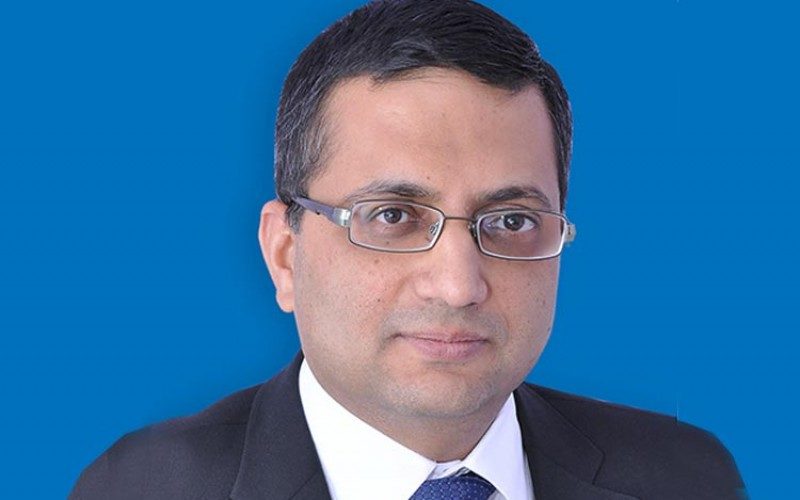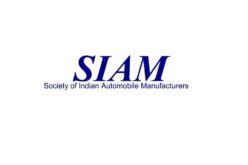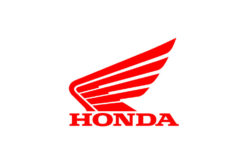Sameer Gandhi, Managing Director, Omron Automation

Overview
-
Conclusion:
Omron is known for its prowess in sensing & control technology. Manufacturing as a field per se, is gaining lot of attention in terms of massive campaigns like Make in India, Skill India, Digital India, Start-Up India. We strive to emerge as ‘enablers of Make in India’ as this strategy has a direct correlation with the manufacturing sector which is our key target area.
Tell us about Omron, its journey in India (product range, milestones, etc.) and role in building Smart, Scalable & Sustainable manufacturing through industrial automation in India.
Omron Automation was incorporated in India in 1996. Gradually, over the last 20 years, we have made extensive progress in various aspects from expanding our footprints, making additions to our sensing & control technology product portfolio and the segments we are catering to.
Today, we have around 200,000 SKUs and around 30,000 variants in our portfolio – spread across industrial components, automation systems, sensing & safety, motion & drives, robotics, software, etc. The company has been helping manufacturers in the form of enhancing efficiency, productivity, flexibility, accuracy and safety as they scale up the value chain. Recently, we have also introduced the futuristic concept of IoT (Internet of Things) to expand our customers’ horizon and help them develop smarter machines based on the concept of ‘i 3’ – Integrated, Intelligent and Interactive.
More than 80% of our business is channel-based. Our network comprises of over 70 channel partners spread across 40 locations in India. Our channel partners are not just sales channels, they also provide the first level of service to our customers.
Our physical presence comprises of a network of six offices, two repair and three training centres. We also have a team of application engineers and resident engineers spread across the country. One of our notable facilities is the Automation Centre built at Mumbai. Based on the philosophy of “you create the concept, we will help you to make it work”, it is a unique establishment providing a highly interactive & tech-enabled interface to know more about us, to experience our technology and help the customers to make the best of their investment in industrial automatio.
Omron is an ‘enabler to Make in India’ by being an ‘automation partner providing end to end solutions’. Our efforts to partner with the industry have been yielding significant results owing to which we have been able to strengthen our share in many segments such as packaging, automotive, FMCG, material handling, pharmaceuticals to name a few. We are also targeting other sectors like water treatment plants and digital.
In India, we serve several brands. For example, a bottle of water sold in India is likely to have been touched in some way by Omron – our products and systems have a role to play in whether that bottle is sealed or not. We believe we are touching innumerable lives in many different ways.
Several Indian companies are still hesitant to adopt automation. As a leader in automated solutions, how does Omron plan to spread awareness regarding the same?
One of the main reasons for the low level of acceptance among the manufacturers is their concern towards investing in something that is adding to the cost. The analysis of RoI also needs to include the impact of other factors like quality and productivity improvements.
However, of late, the level of acceptability has been witnessing an upward trend which is good for the industry.
Lack of skilled manpower is another challenge which makes them wary in adopting newer technology and solutions as it again needs investment. This holds true especially for SMEs and MSMEs. An automation system cannot be successful if not supported with the right set of skill-sets right from the point of conception to deployment to maintenance.
In order to mitigate this challenge to a certain extent, Omron is putting in substantial efforts towards developing their skills. In the last few years we have set up training centres across the country. We provide specific product and tool training in these facilities to our customers, channel partners and some institutes. For this purpose, we have also tied up with the renowned industry body – Automotive Industry Association.
We are also working towards establishing specific channel partners whose role will be to provide training. This can help extend the reach and fill the gap of shortage of skilled workforce. Omron and its channel partners, together, are providing the required skill sets to SMEs and MSMEs.
Tell us about Omron India’s contribution to industrial automation growth story in India? What are the demand trends you see in Indian manufacturing industry?
Omron is known for its prowess in sensing & control technology. Manufacturing as a field per se, is gaining lot of attention in terms of massive campaigns like Make in India, Skill India, Digital India, Start-Up India. As mentioned before, we strive to emerge as ‘enablers of Make in India’ as this strategy has a direct correlation with the manufacturing sector which is our key target area.
Also, I feel the scenario has started to witness some changes slowly but steadily, fuelled by many micro and macro level factors, such as ever-increasing need of complying with the global standards, the constant need to improve operational excellence, desire for zero defects and effects, productivity and quality improvement, etc.
Talking about India, as a country, it will continue to remain a promising destination for Omron Automation owing to many reasons – demographic dividend, young population, a large, growing middle-class coupled with massive urbanization.
The industry is proactively responding to redefining automation in manufacturing to not only meet the current challenges but also what is to come in future for obvious reasons of continuous reinvestment in manufacturing technologies in their growth path.
How does Omron plan to leverage India’s smart city plan? And what kind of solutions does Omron plan to provide to help India achieve its goal?
The whole concept of Smart City is multifaceted. One of the key aspects is that these smart cities will require a lot of new infrastructure. This will include CCTV monitoring, smart street light poles, roof top solar power generation, water treatment plants, etc. Omron products and technologies play a key role in all these areas. These are some of the contributions that Omron’s industrial automation solutions will make towards India’s smart city plans.
Role of Japanese Technology to boost the Indian manufacturing sector…
Being the fastest growing economy, India is surely topping the list of promising destinations for companies across the globe, which includes Japanese companies as well. One of our strengths is the quality and availability of engineers and scientists which plays a great role in determining the ability of a nation to develop competitiveness through differentiation.
Talking about the manufacturing sector, technology acquisition and absorption are two of the important aspects which matter a lot for manufacturing segments overall growth and evolution. The Japanese companies, known for their technological prowess, continued to be one of the key sources of technology acquisition for the Indian manufacturing sector.
Both countries are witnessing a very positive and mutually-beneficial phase in terms of collaborating over science and technology endeavors which will give fruitful results for the manufacturing sector. This is quite evident from the recent commemoration of the 30th anniversary of the conclusion of the ‘Japan-India Agreement on Cooperation in the field of Science and Technology’ in March, 2015.
IoT has been doing the rounds of the technology space. What kinds of IoT solutions does Omron provide? What’s the state of IoT in India? Are India companies ready to adopt the technology?
One of the key technologies about which we are very enthusiastic is the I/O link – majorly targeting the automotive industry manufacturing. This comprises of sensors and other products that will be able to link the data up from the sensors and other components to the PLC. We can access this data from the sensors in real time, without using diagnostic tools, it will help to actually predict when we need to maintain or replace a sensor.
We shall be even able to predict a failure, which will reduce the downtime for the customer. Our PLCs already have the capability of reading and writing data directly to an ERP (without requiring any gateway PCs). So now the data captured by the I/O Link and transferred to the PLCs can be easily integrated with an ERP system thus completing the IoT chain. The ERP system can do a more long term trend analysis of this data and, for instance, guide the plant operators to order sensors depending upon the usage and inventory available. The possibilities are immense and this will be a game changer.
What are your future plans in India?
As a company, we are constantly innovating, and continuously coming up with more value-added propositions and solutions. We have many product launches lined up for this year which will pave way for the planning for the next year. We see ourselves as playing a much bigger role in enabling the manufacturers make in India and enhancing the pool of skills and talent in the automation industry.










